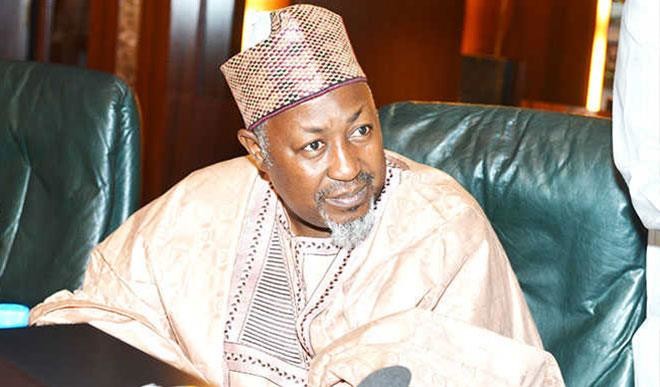Jigawa State Contributory Pension Scheme is being considered the best in the country largely due to prompt payment of terminal, death and pension payments to beneficiaries in the state.
The pension board which caters for the payment of retirees that had worked for the period of 35 years as well as those that died in active service of either Local Education Authority (LEA), Local Government Council and State Government.
The state pension board, which has over N20bn in its coffers is not only prompt in payments of benefits to beneficiaries, but always ensures that the state and local government councils remit contributions of their retirees to the board in time.
Chronicle observed that the board which patronizes 10 pension administrations for the management of its fund, always ensure payment of entitlements to the beneficiaries on or before 10th of every month.
For the purpose of securing the state fund, the board patronizes the pension administrators on yearly basis after which the contractual agreement will be renewed.
The purpose of limiting the agreement to yearly basis, is to enable the board to carry out performance assessment of the pension administrators with a view of ascertaining on whether or not the contract will be renewed.
Our reporter also observed that the pension board has a bench mark which each pension administrator must attained and that failure to leave up to expectation may attracts sanction that might involve dropping such company.
The Jigawa pension board pays an average of over N2bn to retirees annually, though, the figures involved for such payment depend on the number of beneficiaries which fluctuates, however, it is generally accepted that management of pension fund by the states across the country is known to be a herculean task as several policies adopted to make the system effective in the past did not yield any positive results seems.
The Jigawa state pension board which has been rated as the best in the country by the Pension Commission attracted the attention of some state governors across the country, which prompted them to send some team of experts to understudy the Jigawa Contributory Pension Scheme with the view to replicating same in their respective states.
Mega states, like Kano and Lagos as well as Gombe, Zamfara, Katsina and host of others have visited Jigawa state at one time or the other for the purpose of borrowing a leaf in the operation of pension scheme.
In its last disbursement on Monday, Jigawa state pension board has paid the sum of N740.6m as pension and gratuity to 382 beneficiaries.
Speaking during the disbursement exercise, the Executive Secretary of the board, Hashim Ahmed Fagam, said the payment covered for the those retired from July to date.
He said the payment covered three segments; the sum of N316.7m was paid to 146 beneficiaries from LEA while N 91.6m to 72 local government councils pensioners and N3.2m to 164 beneficiaries on state government’s payroll.
Fagam, noted that the payment covers gratuity, death benefit, death balance benefit and refund of eight percent pension contributions, saying his board pays benefit to the retirees on or before 10th of every month.
He further explained that the state was up-to-date in term of payment of retirees’ benefits, adding that the delay of two months recorded before the commencement of present payment was as a result of the annual assessment carried out on the administration of the state pension fund.
“We are paying the sum of over N740m to the total of 382 beneficiaries. We are behinds schedule for this payment with about two months because of assessment we had carried out on pension administrators that are manning the state’s pension fund.
“The Jigawa contributory pension has a capital base of over N20 billion. You cannot entrust such huge of amount of money in the hands of some companies without periodic assessment of their activities.
“We must be sure of the financial capability of the companies that administer our fund. We must also be sure of their management ability. The annual assessment is aimed at reducing the risk involved in securing the state pension fund,” the said.

 Join Daily Trust WhatsApp Community For Quick Access To News and Happenings Around You.
Join Daily Trust WhatsApp Community For Quick Access To News and Happenings Around You.


